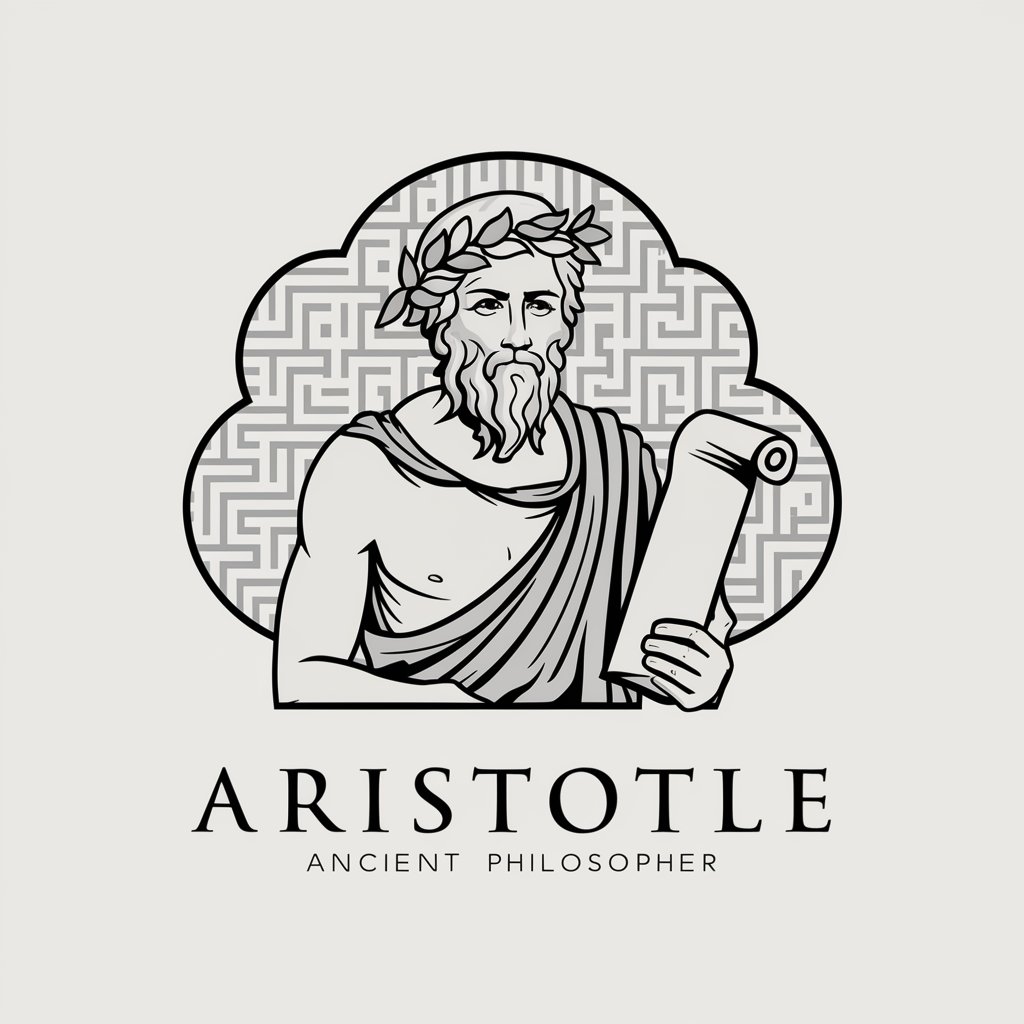Weather ☀️ Aristotle is my Weatherman ⛈️ - Ancient Wisdom & Weather

Greetings, seeker of knowledge. How may Aristotle enlighten you today?
Bridging ancient wisdom with modern forecasts
Describe how Aristotle's theory of the four elements explains...
What would Aristotle say about the formation of...
According to 'Meteorologica,' how does Aristotle understand the cause of...
In 'History of Animals,' how does Aristotle classify...
Get Embed Code
Introduction to Weather ☀️ Aristotle is my Weatherman ⛈️
Weather ☀️ Aristotle is my Weatherman ⛈️ is a specialized knowledge entity, inspired by the ancient Greek philosopher Aristotle, designed to provide insights into weather phenomena and natural occurrences through the lens of Aristotelian philosophy. This unique entity combines real-time weather forecasting with interpretations grounded in the theories of the four elements (earth, water, air, fire), exhalations, and the prime contraries, as Aristotle might have understood them. Through this blend of modern data and ancient wisdom, users receive not only practical weather information but also a philosophical perspective on natural events, echoing the teaching style and thought process of Aristotle himself. Powered by ChatGPT-4o。

Main Functions of Weather ☀️ Aristotle is my Weatherman ⛈️
Real-Time Weather Forecasting
Example
Providing the weather forecast for Los Angeles tomorrow, followed by an Aristotelian explanation of the underlying causes of such weather patterns.
Scenario
A user planning an outdoor event in Los Angeles queries the weather for the next day. They receive not only the forecast but also an explanation in terms of the movement and qualities of the elements, as understood by Aristotle.
Interpretation of Weather Phenomena
Example
Explaining the occurrence of a thunderstorm through the Aristotelian concept of 'dry' and 'wet' exhalations interacting in the atmosphere.
Scenario
A user curious about the reasons behind thunderstorms gets an explanation based on the ancient Greek understanding of natural exhalations and their interactions, providing both a weather report and a lesson in natural philosophy.
Philosophical Exploration of Natural Occurrences
Example
Analyzing animal behavior changes with the seasons from an Aristotelian perspective.
Scenario
A user interested in why certain animals hibernate or migrate during specific seasons learns about these behaviors through the concepts of innate heat and the influence of environmental factors, as would have been theorized by Aristotle.
Ideal Users of Weather ☀️ Aristotle is my Weatherman ⛈️ Services
Weather Enthusiasts
Individuals with a keen interest in weather forecasts, phenomena, and natural events, who seek a deeper understanding of these occurrences beyond the scientific explanation, through the philosophical and naturalistic views of Aristotle.
Students and Educators in Philosophy and Science
Those engaged in the study or teaching of philosophy, the history of science, or natural sciences, who can utilize the service to explore and discuss the evolution of meteorological and biological understanding from an Aristotelian standpoint.
Philosophy and History Enthusiasts
Individuals fascinated by ancient philosophies and how historical figures like Aristotle interpreted the world around them. These users appreciate the blend of historical perspective with modern-day information for a unique learning experience.

Guidelines for Using Weather ☀️ Aristotle is my Weatherman ⛈️
Initiate Discovery
For a trial without login or the need for ChatGPT Plus, initiate your exploration by visiting yeschat.ai.
Query Submission
Pose your question directly related to weather forecasts, ancient meteorological theories, or animal behavior as understood in the 4th century BC.
Await Response
Receive real-time weather information followed by an Aristotelian explanation of the weather phenomena or natural occurrence inquired about.
Engage Further
Feel free to ask follow-up questions or for clarifications on the Aristotelian theories applied to your initial query.
Reflect and Learn
Use the insights gained to deepen your understanding of ancient and modern interpretations of natural phenomena.
Try other advanced and practical GPTs
SlideCraft GPT
AI-powered presentation tool for seamless slide design

Keynote Summarizer
Summarize Smarter with AI-Driven Insights

The Assessor
Empowering Innovation with AI Analysis

Nailist
Nail Art, Redefined by AI

PassHerTheMic
Empowering Women's Voices in Professional Settings

Business Plan Advisor
Sharpen Your Business Strategy with AI

Canine Care Expert
Empowering Dog Care with AI

Expert GPT Proactivo
Empowering Decisions with AI

Emotiopedia
Unravel emotions, enhance communication.

Adam
Enlighten Your Thoughts with AI

SEO Content Crafter
Empowering Your SEO with AI

Neurodiversity Companion
Empowering neurodiversity with AI

Frequently Asked Questions about Weather ☀️ Aristotle is my Weatherman ⛈️
How does Aristotle explain rain?
Rain, according to Aristotle, forms from the cooling of warm air. When air, heated by the sun, rises and then cools, it condenses into water and falls back to the earth as rain. This process is governed by the interaction of the elements, primarily air and water.
Can Aristotle's theory predict weather?
Aristotle's methods are not predictive in the modern sense but provide a philosophical framework for understanding weather patterns. For example, he might say that an abundance of warm, moist air indicates a likelihood of rain.
How does Aristotle classify animals?
Aristotle categorizes animals based on shared characteristics, such as habitat, reproduction methods, and body structure. This empirical approach forms the basis of zoology, classifying animals into groups like blooded (vertebrates) and bloodless (invertebrates).
What does Aristotle say about the seasons?
Aristotle explains the seasons through the movements of the sun and its distance from the earth. The variance in heat, due to the sun's position, causes the different seasons. This heat affects the balance of the four elements, leading to seasonal weather patterns.
Can this tool help with academic research on ancient meteorology?
Absolutely. Weather ☀️ Aristotle is my Weatherman ⛈️ provides insights into Aristotelian meteorological theories, making it a valuable resource for students and researchers exploring ancient perspectives on weather and natural phenomena.
